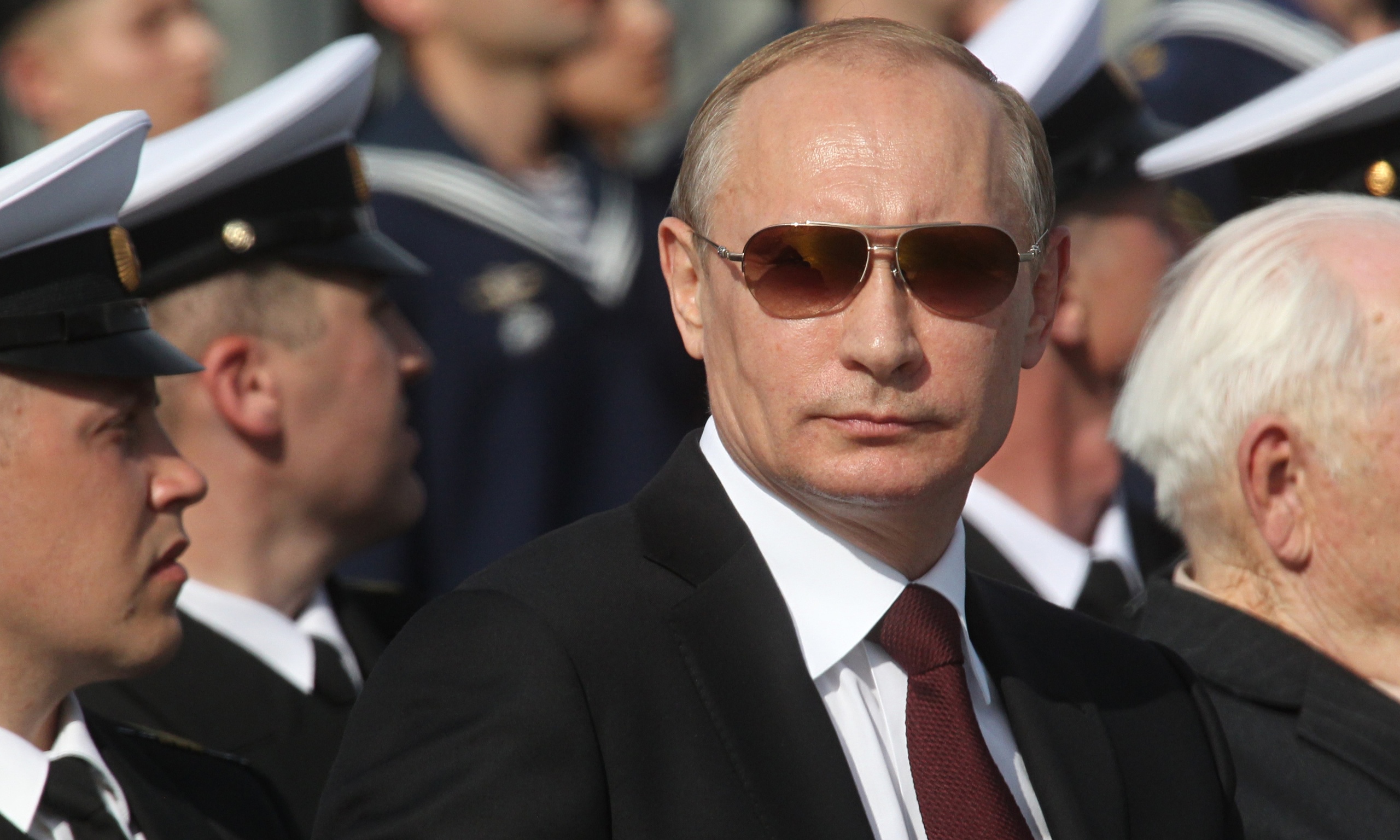
Russia is in a period of slow deterioration — economically and politically — with a regime that has neither a mechanism for the transfer of power nor an agenda to achieve long-term sustainable growth, a panel of Moscow watchers agreed during a forum Thursday on the country’s future.
Dmitry Oreshkin of the Mercator Analytical Group, speaking through an interpreter at the American Enterprise Institute event in Washington, D.C., said, “This is a crisis indigenous to Russia” where the regime of Vladimir Putin masks one problem, say an economic one—falling oil prices and a declining ruble—by creating a success, a political one—annexing Crimea. “The government has been very successful in diverting attention” and leaving Russian society living in a fantasy of its return as a superpower.
“Russian political institutions are still having to catch up with . . . a more sophisticated society” that emerged with the collapse of the Soviet Union, Mikhail Dmitriev of New Economic Growth. But right now, the international sanctions against Russia for its role in supporting separatists in Ukraine and the economic recession brought on by the drop in oil prices has left its economy in near-stagnation, a situation he compared with that of Argentina when it defaulted on its debt.
Natalia Zubarevich of Moscow State University said “a turn to the East [for economic development and to overcome sanctions] is impossible.” She estimated China’s investment in the Russian economy at about 3 percent and noted that the Chinese are looking for the same things as Western investors—safety and profitability.
“You have to lessen foreign tensions to attract development.” She added that Western investors are interested in Russia and could be moving their governments to reduce sanctions in the next three years.
Whether that happens is open to question and subject to moves Russia makes militarily on its borders. Sergei Guriev, an economics professor at France’s Science Po, asked, “What will be the next Crimea? I don’t know.” It could be a hybrid crisis as in the Ukraine or could involve a NATO country, he said. He added that he doesn’t expect Putin to give up control of Crimea and expects the regime to continue its involvement in the Ukraine, leading to “Minsk 3, Minsk 4, Minsk 5” cease-fires, but fighting never quite ends.
Zubarevich added that the economic situation is causing a number of talented Russians to leave the country or to move internally to seek better opportunities for themselves and their families. She termed her 20- to 25-year-old students, “a lost generation.”
“The market assumes Russian oligarchs will be taking their money out” of the country as well, Guriev said.
Evgeny Gontmakher of the Institute of World Economy and International Relations said, “People like me don’t want to leave.” But the nation’s low investments in health care and education—3.5 percent each of Russia’s gross domestic product—will take a toll. “We spend money for the military . . . for the state and that’s not efficient.”
“Who will work at the new job places” when investment returns and the economy picks up? “Migrants,” he said in answer to his own question. “We will have a deficit of human resources.”
Alexey Malashenko of the Carnegie Centre said he expects the economic situation to “get worse before it gets better.” At this time, the regime “can manage the political sphere. It will take a lot to have the elites split” from Putin.
Although he and others didn’t expect the political opposition to make any serious gains in upcoming voting, elections are “the one day that the power has to present itself to the will of the people and it fears this.”
Almost all the panelists agreed that Putin’s approval ratings are at 84 percent among Russians, but that could change quickly if a crack appears in its hold on power as it did in Romania with Nicolae Ceausecu—assassinated in a popular revolt—and in Chile with Augusto Pinochet, who was forced from power.
Kirill Rogov of the Gaidar Institute noted Putin is steering a far different political course now than he did in 2000 when he seemed to be an economic and political moderate.
Who will succeed Putin is unknown, the panelists said. The next regime could be more authoritarian—closer to Joseph Stalin—or it could be more flexible and remain in power for two or three generations.
“We have a lot of reasons to believe Russia can be democratic,” Guriev said, citing its high rate of literacy and relative wealth, but “Russians are cynical.”





